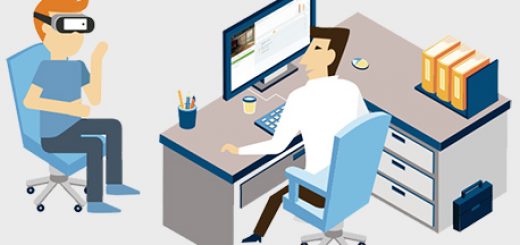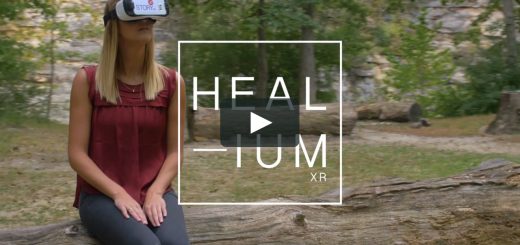Clinical Study: Virtual reality can reduce paranoia and anxiety in patients with psychotic disorders
Published · Updated
Virtual-reality-based cognitive behavioural therapy versus waiting list control for paranoid ideation and social avoidance in patients with psychotic disorders: a single-blind randomised controlled trial
The following is summary text from The Lancet Psychiatry journal.
Published: 08 February 2018
Background
Many patients with psychotic disorders have persistent paranoid ideation and avoid social situations because of suspiciousness and anxiety. We investigated the effects of virtual-reality-based cognitive behavioural therapy (VR-CBT) on paranoid thoughts and social participation.
Methods
In this randomised controlled trial at seven Dutch mental health centres, outpatients aged 18–65 years with a DSM-IV-diagnosed psychotic disorder and paranoid ideation in the past month were randomly assigned (1:1) via block randomisation to VR-CBT (in addition to treatment as usual) or the waiting list control group (treatment as usual). VR-CBT consisted of 16 individual therapy sessions (each 1 h long). Assessments were done at baseline, after treatment (ie, 3 months from baseline), and at a 6 month follow-up visit. The primary outcome was social participation, which we operationalised as the amount of time spent with other people, momentary paranoia, perceived social threat, and momentary anxiety. Analysis was by intention to treat. This trial was retrospectively registered with ISRCTN, number 12929657.
Findings
Between April 1, 2014, and Dec 31, 2015, 116 patients with a psychotic disorder were randomly assigned, 58 to the VR-CBT group and 58 to the waiting list control group. Compared with the control, VR-CBT did not significantly increase the amount of time spent with other people at the post-treatment assessment. Momentary paranoid ideation (b=–0·331 [95% CI −0·432 to −0·230], p<0·0001; effect size −1·49) and momentary anxiety (−0·288 [–0·438 to −0·1394]; p=0·0002; −0·75) were significantly reduced in the VR-CBT group compared with the control group at the post-treatment assessment, and these improvements were maintained at the follow-up assessment. Safety behaviour and social cognition problems were mediators of change in paranoid ideation. No adverse events were reported relating to the therapy or assessments.
Interpretation
Our results suggest that the addition of VR-CBT to standard treatment can reduce paranoid ideation and momentary anxiety in patients with a psychotic disorder.
Funding
Fonds NutsOhra, Stichting tot Steun VCVGZ.
See the study:
http://www.thelancet.com/pdfs/journals/lanpsy/PIIS2215-0366(18)30053-1.pdf
Want to see more?
Join us for a Live Online Class!
AR & The Future of Healthcare
March 6, 2018 10am PST
Author Shel Israel and healthiAR.com founder Kristi Hansen Onkka will discuss patient anxiety and the many innovations changing patient care using augmented and virtual reality technology. Use code HEALTH20 for $20 off listed price.





What do you think?
You are the first to add a thought